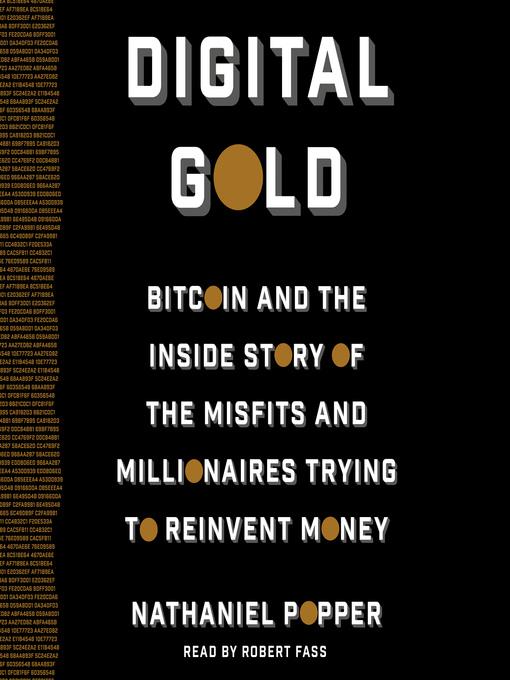
Digital Gold
Bitcoin and the Inside Story of the Misfits and Millionaires Trying to Reinvent Money
کتاب های مرتبط
- اطلاعات
- نقد و بررسی
- دیدگاه کاربران
نقد و بررسی

May 15, 2015
This is a biography of the Bitcoin phenomenon and its repercussions on the lives of the various investors, entrepreneurs, and programmers trying to harness the wealth of advantages that have led to the system around the crypto-currency being called "the Internet of money." New York Times reporter Popper culls from hundreds of interviews to piece together the various facets of Bitcoin's attraction, including its potential to facilitate innovative kinds of transactions, reduce costs to merchants, and provide anonymity to privacy-conscious consumers. Wise calibration of esoteric subject matter conveys the significance of events without excessive complexity, and a technical appendix indulges the more computer-savvy reader. Popper thankfully avoids injecting himself into the narrative, leaving the reader feeling like a globe-trotting fly on the wall observing the disruptive effects of an emerging technology on stagnant systems. Overall, this is an engrossing look at a system creatively designed to bring money into the 21st century. VERDICT Readers who were excited about the possibilities of the Internet in 1993 should be similarly piqued by Bitcoin, as should libertarians, tech nerds, philanthropists, and business types.--Ricardo Laskaris, York Univ. Lib., Toronto
Copyright 2015 Library Journal, LLC Used with permission.

April 1, 2015
In which all that glitters is not gold-but the usual crowd of crooks and speculators is still part of the package. What is digital gold? Easy: it's a kind of electronic money that permits its users to conceal their identities from even the nosiest hacker-or government agency. As New York Times reporter Popper notes in this oddly entertaining if eminently geeky narrative, the vision of that digital gold comes to us courtesy of dystopian sci-fi writer Neal Stephenson, whose 1999 novel Cryptonomicon glossed over the practical difficulties of getting such a currency accepted at stores and restaurants everywhere, especially when jealous banks and governments wanted nothing to do with it. Of particular interest are Popper's notes on how China, that land of the enshrined command economy, wrestled with whether to declare the manifestation called Bitcoin legal or illegal. Eventually, the government decided that the "virtual currency exchanges needed to register with the Ministry of Information," with all the ominousness that phrase entails. Popper deftly traces the growth of Bitcoin from experiment (complete with a mysterious, elusive inventor) to open-source technology and from easily dismissed plaything to something that the world's leading banks were alternately studying, trying to thwart, and trying to leverage-says one champion, sagely, "I think whatever Jamie [Dimon, of JPMorgan Chase] does or doesn't do will be as relevant as what the Postmaster General did or didn't do about email." The story acquires urgency when the crooks come a-calling, hacking into the hackers' digital dream world to make off with hundreds of millions of dollars' worth of coins that had actual value in the real world. Readers may not be any less confused about the actual workings of Bitcoin, which remain murky, when finished with this book, but they will certainly know enough to make intelligent choices about whether to buy in or steer clear.

May 15, 2015
In 2008, a mysterious person known as Satoshi Nakamoto published a white paper describing a peer-to-peer electronic cash system. It would be secure, anonymous, free from transaction fees and the control of any central government. That system was to become Bitcoin. Depending on how you look at it, Bitcoin is either a libertarian money standard immune from government overreach, a dark currency used by drug dealers to launder cash through online black markets, a convenient way to sell a cup of coffee without a transaction fee, or an Internet bubble. Bitcoin actually has the potential to be all of these and more, a digital cash seen to be at the same stage the Internet was in 1993 before the advent of the web browser. Popper, a New York Times reporter, unravels the story of how Bitcoin went from a geeky math project to a speculative craze, creating both millionaires and felons and attracting the attention of investors such as the Winklevoss twins, of Facebook fame; Congress; and the FBI. A solid piece of reporting on a potentially disruptive technology to keep an eye on.(Reprinted with permission of Booklist, copyright 2015, American Library Association.)

























دیدگاه کاربران